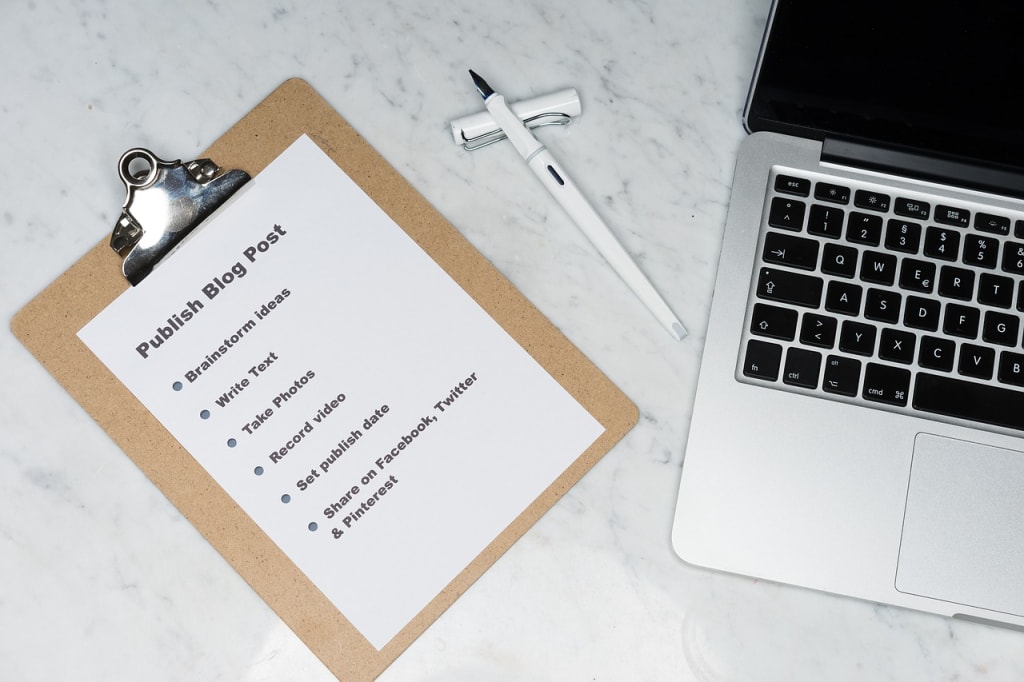How to Write Eye-Catching Blog Post Headlines
The headline is the most important part of a blog.

You take your web magazine too seriously: you put thoughts and efforts into your About Us page, your site's title and tagline, and you've even chosen an unusual site name. You sweat your photo.
You read and re-read your drafts to make sure they are.
Spreading over 1.4 million messages across WordPress.com consistently, how would you make sure your work falls into the swarm? Creating solid post titles is limited to addressing obstacles by followers, provoking awards, attracting adherents, and winning repeat visits.
Here are a few plans you can use as headlines for your posts.
Become unique
There are many posts like what Game of Thrones I taught About Modern Society or everything I think about marriage I learned from Homer Simpson on today's planet.
How many flyers have you seen recently? You hear what I'm talking about: 10 signs that millennials will destroy the world or 15 ways to find out if you're really a hipster.
Of course, these kinds of features have become typical of the web, and we sometimes appreciate the fun list too much.
In case you need your work to step out of the swarm, you may have to reconsider such developments unless you feel like you have something that goes beyond that.
Moreover, given all the circumstances, we are eager to familiarize ourselves with it
Learn the bosses
Most likely, there is a motivation for the title and direction to online magazines and magazine articles you are currently reading. Is there a couple of places or magazines that you really enjoy? Study their names.
Think about what attracts you to these titles.
What caught your attention? What interested you?
Try to copy your favorite writers when compiling post titles. To me? I appreciate Maria Popova's title writing style at Brain Pickings.
Never trite, constantly tempting, Mary's messages reliably reaching my Instapaper represent later brain support. Here are a few Brain Pickings post headlines that caught my attention:
Philosophy history in Superhero Comics
Henry James means old age, memory, and what happiness really
Tolkien's little-known, great art
Lead with the end in mind
If you keep in touch with learning, whether it's telling a personal story or offering hard-won advice, it's great to ask yourself, what is the most important thing I need to get my followers to remember while reading this post?
Creating a response in the message header naturally reinforces your most important point to the reader by confirming that your message is listened to as well as remembered.
Try to interest or use the surprise component with headlines, hinting at what readers might just see or learn by looking at the post. Consider Maria Popova's function above, Tolkien's little-known, magnificent art.
I'm immediately amazed - one of my favorite writers - Bilbo Baggins Dad no less - was an essayist as well as a master? This piece of new data leads me to turn to this connection and get answers to questions about Tolkien's central elements.
Reward: How do Twitter, Google, and Facebook perceive it?
The title of your message naturally turns into a label of your message, which is part of the persistent connection or URL of your message.
If the title of your post is long enough (more than six or seven words), consider changing your slug to remove words like "k," "from," "our," "this," "this," "then," and so on, which don't quite match the subject of the post, for faster web index analysis. As an example, the label for this post would be:
/ drawing motion tips to make incredible headlines for blog posts
I shortened the title to an attendant to emphasize the main point: essay incredible post titles.
/ composing unusual post titles
If you have a chance that your weblog is naturally combined with push messages and tweets on Facebook and Twitter, message headers are what is transmitted by default through Publicize, so be sure to consider how your post title might be visible when it manifests itself in your interpersonal organizations.
When you're writing your article, you may also need to think about the words readers will use to track down your post and ensure that those words make it into the headline.
Participate in communities where your audience is already gathered
Sponsors on Madison Avenue have spent billions to find out and find out where shoppers gather with different aspects and what they put their time into, improving so they can focus on their messages.
They do this in light of the fact that coming to a 65+ lady meeting advertising awesome gaming gear is known to be a waste of money, while demographic men in their 18-the 30s who are shaking in climbing centers tend to have a much higher ROI.
Thankfully, you don't have to spend a cent to gauge where a significant portion of your group of viewers can be found online.
Truth be told, you probably know of a couple of web magazines, discussions, websites, and social media groups where dialogue and the content of your point of view are constantly being published (and, if you don't, a Google query will take you a significant role in the way).
Conduct keyword research when writing posts
Of course, a huge portion of what appears in search robots focuses on the terms and expressions that your collections of people actually type into the web search tool. It's hard to know what those words will be like if you don't do some research, and luckily there's a free tool from Google that will help out called the Adwords Keyword Tool.
Sort through a few words at the top, click "Chase," and AdWords will show you expressions that match the purpose and/or terms you used.
When you select "exact match", AdWords will only show you the number of scanned images rated for that exact expression.
If you use broad matching, they'll include any search queries that use similar/comparable words in an example that they think might fit your expectation of a keyword phrase (which could get pretty darn extensive).
"Conformity of expression" will only provide you with expressions that include a saying or words in your hunt – still far enough far-reaching, but sandwiched between "exact" and "extensive."
When you're composing a blog post, keyword research is best used for the title and function of the post.
For example, if I need to write a post here in Moz about how to make a great plan for bloggers, I can create something that uses the expression "blog post thinking" or "blog thinking" next to the title and my features, such as "The idea of logging into a blog when you're really stuck," or "blogging ideas," or "blogging ideas," Which will help you unlock the author. "
Improving a post to focus on a specific deciding word isn't as difficult as it sounds. 80% of the quality stems from simply using an expression in the title of a blog post and creating fantastic content on the topic.
Gather the best of your niche
Bloggers, distributors, and managers of web pages of any assortment in the web world love and despise when they are analyzed and contrasted with each other. It sparks constant interest, conversations, disagreements, and aggressive behavior – whatever it is, it's striking to get attention.
The moment a blogger distributes an arrangement of "best X" or "best X" in their field, most of those who hold the position exceptionally applaud this summary, offer it, and have connections to it.
For now, obviously, I would support anyone building something like this to be as transparent, flawless, and conscientious as possible.
A great asset that lists the "best and smartest" in your corner – whether it's websites, Twitter accounts, Facebook pages, individual posts, individuals, meetings, or anything else you can think of to rank for – is a terrific substance for a successful movement and growing into a known amount in your field.
Graciously, and once you do, be sure to tell those who stressed that they are recorded. Tweeting them with a connection is a decent approach for this, but if you have email addresses, connect by all means. Regularly this can be the beginning of an incredible relationship!
Also, now to you
Motion is not rocket science; however, this requires significant investment, consistency, and consistency. Don't give up. Stick to your calendar.
Keep in mind that everyone has a couple of sucky posts, and just by creating and distributing those horrible posts, you gain the inclination that's important to eventually turn your online magazine into something amazing.
Creating enticing titles isn't just a work of art; it takes a bit of practice. How much can you tell you've learned the most about blog post titles? Share your tips with the class in the comments section.
About the Creator
Bikash Paul
Bikash Paul is a writer, who provides you valuable stories which give you value and knowledge about digital marketing and other topics.






Comments
There are no comments for this story
Be the first to respond and start the conversation.